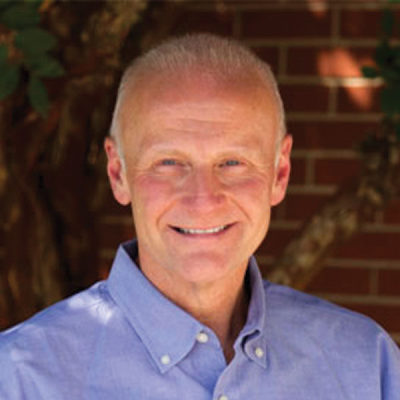8 essentials of digital delivery
Six years ago, our church embarked on one of the greatest and most rewarding faith-adventures of my years in pastoral ministry. We launched a second campus.

Today the multi-site movement has become a staple in many cities and communities, but eight years ago when we began praying and planning toward this venture, it was a vast learning curve and many unanswered questions. By God’s grace, we’ve not only been blessed with a vibrant, growing second campus, but the stories of life-change, baptism and heartbeat for mission are something that have truly breathed life and hope into us all.
One challenge, "one chink in the armor," in our shiny new adventure was the inability to have adequate and effective means of “live" video link to this second campus. Though the technology was “technically” there, issues of buffering and bandwidth created a crisis. Three out of the first five Sundays ended up with “frozen" being the feature video during worship. Given our church schedule at the time, there were no easy solutions. We had to opt for a week delay or attempt to record ahead. For many reasons, I did not feel the delay strategy to be right or helpful for us. Instead, we started doing video at the new location on Wednesday mornings with a handful of available staff to come and listen.
Standing in that empty building every Wednesday morning created a major fear factor and life change for me. First, I had to do a much quicker turn around on my message to completion than ever before. I also had to try to match the mood and energy of a Sunday “live" worship experience with a Wednesday morning empty building exercise. And I had to learn how to preach without an audience.
During those days, there were several things I had to do and learn. Given the sudden onset of digital preaching and empty chairs many are facing today, I thought it may be helpful to share a few tips.
Be Personal
Since you don’t have others in the room with you, help them get to know you. Talk about your life, thoughts, affections, concerns and weaknesses. In many ways, this becomes one of the best platforms for your own testimony of grace, forgiveness and faith in your life. Of course, I recognize, preaching is not about us (you); it is the declaration of the treasure of the gospel of grace. However, you are a "jar of clay" and those who see and hear you will connect with the clay, even as they hear and receive the treasure. Talk to people in a way you need to hear others talk to you and connect with people through warm facial expressions, personal stories and life experiences that enable them to relate to the message you are delivering. Sincerity and authenticity are the parallel tracks of personal connection and good communication. Don’t be like someone you may have seen on television or you have listened to on a podcast. Be who you are by God’s grace and share about His goodness and grace in your life.
Be Prepared
Candidly, far too many of us are used to leaning into our basic knowledge of the Bible and ability to read and relate to the audience. We approach Sundays with a general sense of direction (a topic, a series, a few good illustrations or stories), but often let the way the wind blows determine where we go and what we do. Preaching without a visible audience demands disciplined preparation. While none of us want to come off robotic as if we are reading a script, we must invest the time and effort to prepare a message that has order, structure, and substance. My pastor, Adrian Rogers, offered this simple structure for every sermon: “Hey, you. Look, do.” The “hey” is a means of getting attention. Invite them into your presentation. The “you” is needed to bring about personalization and reflection. The “look” is the reveal of knowledge, truth and instruction. And the “do” is application and action. Be sure each of these elements are present in preparation and be sure you prepare.
Be Patient
You are not going to be good at this at first. It is strange and awkward to preach in any setting without people. I’ve often said, “It’s hard to feel anointed alone.” Preaching is a discipline of mind and devotion of heart, but the practice of preaching without a congregation can quickly lead to exasperation and frustration. The crucial issue today is not to try to be perfect, but to persevere and well, “Just do it!” Admit your discomfort, but don’t dwell on it. Remember, this is a new skill and will require some time and effort to get comfortable. Don’t let the self-conscious concerns about your delivery keep you from simply taking a breath and stepping into the arena and preaching. As has been observed by many, in reality we always preach to an audience of One.
Be Practical
One thing that is super challenging on video is humor. It is not impossible, but somewhat impractical. Joke telling without laughter is like beating a drum without rhythm. If no one laughs, it's lame. But you can be self-deprecating. You can use a shared video or you can communicate things that humor your heart, and this will engage the listener. If you do say something intended for comic relief, laugh at yourself, but please don’t be goofy!
Be Passionate
Just because you don’t have the catalyst of people’s visible response, it should not keep you from giving verbal and visible expression of the passion of your heart for the Lord, for people, for the Word and for the lost. Even without a visible audience, people can and will still feel your pulse. Just don’t let the passion be one of performance. No one wants you to “pitch” like a sensational weekend event at an auto dealership or watch you do your “skit” on video. Over speaking and performing can distract from the message, but genuine passion and concern will transfer. Many of us feel passion as we pound out responses on social media to those who ignite, anger or engage us. Let’s be sure we let good passion move us in the message, but leave the performing arts to actors.
Be Pastoral
Think and communicate in the realm of the relationship you have with your people. They don’t just need you to preach (though preaching is a critical function of a pastor), they need you to acknowledge them and express care and concern. Be who you are for them and with them — their pastor. The heart and voice of the shepherd are needed in the disturbances and disruptions of life. Think of it this way: you can make more home visits with your people this Sunday than you have made in years of ministry living in your community. Talk to your people like a pastor and focus what you say to them — their needs, their cares and their worries — not yours. Make sure there are many “we's” and few “I’s” in your message.
Be Prophetic
Don’t ramble. Say something that matters. Preach truth, declare the Scripture, teach doctrine and proclaim the gospel. Declare the "faith that once for all delivered to the saints" and call people to a place of repentance and faith. Tackle tough questions and confront real life problems with biblical solutions. “Preach the Word” and call for action. Don’t default to moralizing devotions. Speak truth in love and trust the Lord to use a medium that challenges you to be more dependent upon Him and the work of His Spirit.
Be Prayerful
Sometimes it takes the disruption of the pastor's protocol and church assembly to push us to a place of desperation in prayer for God to work through our lives and lips. Funny how the absence of people pushes us to greater dependence on the Lord. Do what you do as an offering to God and let God determine how to use and direct that offering. None of us gets to choose the context of our leadership — only the character we demonstrate in it. Pray, preach and trust God.
The weekly exercise needed to “fix” the technical breech we faced in those days turned into a three and a half year practice for me. Yes, I’ve been there, preaching to an empty room again and again, but today, God has given us fruit and favor in this venture, and a church that loves the Lord and His Word is thriving because He has honored HIs Word. You don’t need an audience, just the assurance that God honors His Word. "For as the rain and the snow come down from heaven and do not return there but water the earth, making it bring forth and sprout, giving seed to the sower and bread to the eater, so shall my word be that goes out from my mouth; it shall not return to me empty, but it shall accomplish that which I purpose, and shall succeed in the thing for which I sent it”(Isaiah 55:10-11 ESV). Pray for me as I preach and pray with you.
David H. McKinley is pastor-teacher of Warren Baptist Church in Augusta, Georgia.




























